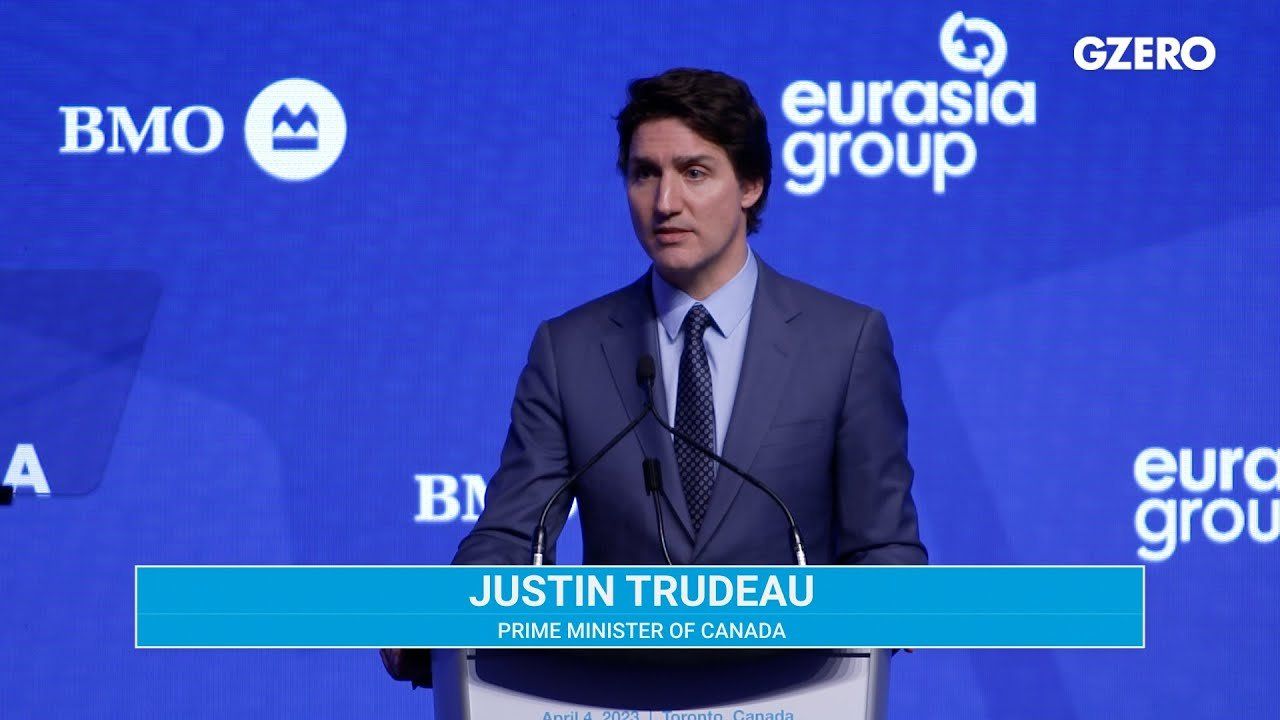GZERO North
Trudeau lays out plan to grow Canada’s clean economy

Trudeau lays out plan to grow Canada’s clean economy | US-Canada Summit | GZERO Media

On the heels of his recent meeting with US President Joe Biden in Ottawa, Canadian PM Justin Trudeau took to the stage at the US-Canada Summit in Toronto on Tuesday to woo Bay Street — Canada’s version of Wall Street — and voters with a clear message: The future is bright for Canadian (green) businesses and workers.
Referring to Biden’s Inflation Reduction Act, which been a source of friction over fears it’ll see investment flee south of the border, as a historic investment to fight climate change, Trudeau spotlighted his own plan to invest in the clean-energy economy.
The PM hopes that the Canada Growth Fund, a new $15 billion investment vehicle announced in last week’s budget, will help scale the clean-tech companies that might otherwise have moved to the US owing to IRA-linked subsidies. This, combined with billions in foreign direct investment, he said, will help “Canadian workers and Canadian industry stay competitive.”
Trudeau’s plan will also ensure that Canada offers a reliable supply chain feeding the US trading partnership. “Global economies are seeking stable trading partners and reliable supply chains in the face of geopolitical uncertainty,” he said.
The PM acknowledged that globalization has failed to deliver increased wealth for all, resulting in disillusioned masses who remain skeptical of the establishment. Political forces today, he warned, are trying to leverage this economic pain, promoting isolationism and dangerously sewing distrust.
“Profits only come when people are doing well,” he said.
Whether he can deliver on pledges to improve Canadian competitiveness will be up to voters to decide. Trudeau must face the electorate before Oct. 2025.
Trudeau spoke at a US-Canada summit in Toronto co-organized by Eurasia Group and BMO, a top Canadian bank. The event brought together government and business delegates from the two countries to talk issues like US-Canada politics, trade, tech innovation, security, energy, and climate change. Among the guests were US Sen. Chris Coons, Michigan Gov. Gretchen Whitmer, Ontario Premier Doug Ford, and Ambassadors Kirsten Hillman and David Cohen.
1,170: The number of high-rise buildings in Kyiv that were left without heating following a barrage of Russian attacks last night on Ukraine’s capital and its energy facilities, per Kyiv Mayor Vitali Klitschko.
U.S. President Donald Trump and Japanese Prime Minister Sanae Takaichi hold up signed documents regarding securing the supply of critical minerals and rare earths, at a bilateral meeting at Akasaka Palace in Tokyo, Japan, October 28, 2025.
Representatives from the European Union, United Kingdom, Japan, and others will meet in Washington this week to discuss a strategic alliance on critical minerals.
80,000: The number of people estimated to be in the streets of Czechia on Sunday to show their support for President Petr Pavel after he blocked the nomination of an environmental minister who performed the Nazi salute and posted Nazi memorabilia.
The US has started handing $1,000 to the bank accounts of newborn babies. But can policies like this one help boost sagging birthrates in advanced democracies?